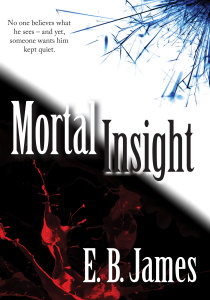 This fourth week of the ‘Write Life’ series we go back to school with highly acclaimed Australian author, Meredith Resce. Meredith has been a key figure in the developing Australian inspirational fiction market since the release of her debut novel, and since then she has continued to take her readers on wonderful, at times thought provoking, and characteristically stirring adventures. I’m sure you’ll appreciate her insights as she dons her teacher hat for The School of Writing.
This fourth week of the ‘Write Life’ series we go back to school with highly acclaimed Australian author, Meredith Resce. Meredith has been a key figure in the developing Australian inspirational fiction market since the release of her debut novel, and since then she has continued to take her readers on wonderful, at times thought provoking, and characteristically stirring adventures. I’m sure you’ll appreciate her insights as she dons her teacher hat for The School of Writing.
It’s been seventeen years since I published my first fiction title. Since then I have written and had published sixteen titles altogether. What have I learned?
• You think you might be in charge of the story, but sometimes characters have a mind of their own and take charge of the story for you.
• Writing is fun, fun, fun.
• Writing is hard work.
• Seeing your book in print is satisfying.
• Seeing boxes of books in your garage is frustrating.
• Writing is a way to communicate the message of the gospel.
• Preaching or writing with an agenda is dismissed as conservative propaganda by secular readers, even some Christian readers.
• There is a huge population of readers and Christian readers.
• Getting your book visible in the market is becoming increasingly difficult.
• I love writing a solid story, with solid characters.
• Sometimes my solid characters have real character flaws, and involve themselves in questionable activity. Suddenly I feel like God, trying to sort them out.
That is, I think one of the biggest challenges of being a writer of fiction. If I were an ordinary secular writer who was being judged on the merit of her plot, character development, construction of conflict and conflict resolution; the level of engagement I have created and the excitement the story provokes, then moral standards, as I understand them, are not even a question for consideration. Any activity is fair to discuss. I think the main restriction on an ordinary fiction writer would come under that question of ‘right to judge’. That seems to be the only moral that is still considered law right across the board. Do we have a right to make moral judgements or to project our own moral value system?
This is the sticking point for so much of what we do in writing nowadays. If I am happy to pitch to the dear, sweet, Christian readers, who have lived in Christian land their whole life, then I can moralise as much as I like. If I hope to influence folks outside the Christian bubble, then preaching with moral agendas is not acceptable. So in recent years, I guess the question I have been trying to come to grips with is: Who am I writing for, and why? This question is closely followed by ‘how self-righteous are you?’ and ‘How simplistic are your moralistic answers to real world problems?’
I would like to sit here and tell you that I have fully thought through these perplexing questions, and have come up with some really good answers, but the truth is, I have not. I have been thinking them through, and continue to ponder on them, with a furrowed brow and everything, but I don’t know that I have a definitive answer. But I still love to write. Sometimes I just let the story flow, and let the characters have their head. I try not to impose my values onto them – for a while – and occasionally they lead me into a moral bind. They lead me to places where I know what they would say and do, but that conflicts with my own moral standards. Then I am in a conundrum. If I let them be who they really are, and they continue in the current attitude or activity, I begin to feel as if I, the author, am making a statement about what I believe to be right or wrong.
I know what I believe, and I could shake my characters and give them a good talking to – but the plot would lose credibility and become contrived for the sake of a religious agenda. It is at these moments, readers, when I have to think long and hard, pray for wisdom and inspiration, and wait for the Lord to help me out. Thankfully, so far, He has, and I’ve been able to resolve my moral dilemmas without compromising my foundational beliefs, I hope, credibly.
In my latest work, which I have only just written the first two chapters of, I already know what happens later on down the track, where one of my characters takes a self-righteous stand. She believes she is right, and she probably is, except that she has allowed her own pride in her own good works to become as bad as the thing she was protesting about. It was a little amusing as I thought it through in my head. She was me – making a moral stand and fussing about the black and white issues, and all the while passing over the grace of God which has been poured out for all sin, including self-righteous pride.
As I said earlier in this blog, writing is fun, fun, fun. And sometimes it is funny or ironic. God has a way of teaching you, the author, a thing or two about yourself when you are so invested in different characters. Take care as you go.
 Meredith Resce has fifteen titles published under her name, and one title published under a pen-name – E.B. James. She has sold over 100,000 units worldwide. As she approaches the 20th Anniversary of ‘The Heart of Green Valley’ series, she is putting time and effort into getting ‘Green Valley’ #6 ready for release. Make sure you head over to Meredith’s website www.meredithresce.com to find out more.
Meredith Resce has fifteen titles published under her name, and one title published under a pen-name – E.B. James. She has sold over 100,000 units worldwide. As she approaches the 20th Anniversary of ‘The Heart of Green Valley’ series, she is putting time and effort into getting ‘Green Valley’ #6 ready for release. Make sure you head over to Meredith’s website www.meredithresce.com to find out more.
Thanks Meredith for your insights 🙂
It’s an interesting dilemma between ‘authenticity’of characters and situations and message though I think you are right that the message (or theme) should come out of the story rather than been imposed or tacked on it. I also think that all fiction has an embedded message. The current mainstream publishers embargo on spiritual (especially Christian) references in fiction gives the message that spirituality is irrelevant to people’s lives, even uncommon or nonexistent – whereas in fact over 60% of Australian believe in God and almost a fifth of Australian attend church at least monthly (http://www.ncls.org.au/default.aspx?sitemapid=131).
I appreciate the desire of writing for the mainstream market from a Christian worldview (that’s close to my heart) but I also am beginning to wonder if we need to remind people that there is a God and that there are people of faith in this world. I’ve no answers but lots of questions to the conundrum.
A conundrum indeed!
Thanks for those insights Meredith. It’s an interesting line to walk between being true to the characters and what they would do and say, but also staying true to foundational beliefs without sounding judgemental or moralising. Good on you for seeking God as you navigate that path. I’m in the process of trying to write for the mainstream while staying true to a Christian worldview and I’m sure I’ll come across the dilemmas you mentioned. A couple of them have already reared their heads 🙂 But the mainstream market needs more of those kinds of novels. The trick is to keep that authentic voice that will resonate with people. Good luck with your latest novel. It will be interesting to see what your characters get up to 🙂
Hi Meredith,
Those bullet points near the top are so true. We hear so much apparently contradictory advice which is all arguably correct. I don’t know if there’s another occupation quite like it.
And that curly conundrum you mentioned has got me thinking too. I’m not surprised that you haven’t quite wrapped your head around it. You’ve given us plenty to ponder. I’ve long felt that giving readers who are fixed in what they’re looking for, a story to satisfy their expectations isn’t necessarily what every Christian author should be doing.
Thanks for this thought-provoking post, Meredith and Adele.
Yes, much to ponder indeed! Thanks for your comment, Paula – and your insightful post, Meredith.